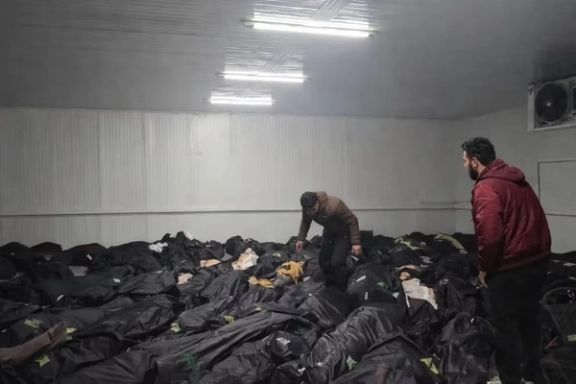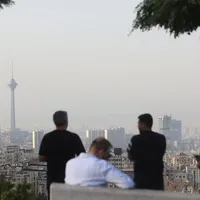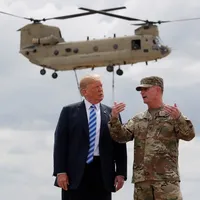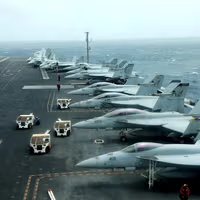“We're all in the same boat shaped by the sacrifices of the martyrs of the Islamic Revolution, and it would be a shame if our differences created weaknesses", he said in an interview with state media
It sounded, at first, like an appeal for unity. But in the opaque language of the Islamic Republic, moral parables are rarely innocent.
Beneath the call for calm was a political warning: a message to rival factions inside the regime to stop leaking, stop exposing, stop fighting, before their infighting sinks the whole ship.
When Shamkhani urged everyone not to “puncture the boat,” he invited an obvious question: whose boat? Was he speaking of the Iranian nation or of the VIP mariners like himself who have captained it for nearly five decades?
In one reading, the “boat” is the state itself, a vessel battered by sanctions, protests and crises. From that vantage point, Shamkhani’s warning was a familiar one: security men urging unity to preserve the ship of state.
But there’s another interpretation, and it’s the one most Iranians heard. This wasn’t a plea for national survival.
It was a coded SOS from the elite, a reminder to fellow insiders that the leaks threatening to sink them were coming from within their own cabin. Their “boat” isn’t the Islamic Republic; it's the luxury vessel of privilege, patronage and power that keeps them afloat while the rest of the country treads water.
History has shown that when Iran’s political ship hits rough waters, it’s not the captains who drown, it’s the crew.
Economic collapse, inflation, repression, all of it falls hardest on those already half-submerged: workers, teachers, pensioners and the youth. Meanwhile, those steering the ship have lifeboats waiting: foreign bank accounts, Dominica passports, villas on Private Islands or even in London.
So when Shamkhani warns that “we’ll all sink together,” he isn’t speaking to the street vendors or nurses who can’t afford rent. He’s speaking to his peers, the sanctioned oligarchs and security bosses who know that too much sunlight might burn their privilege.
The crumbling myth of piety
The scandal’s power lies not in the wedding itself, but in what it reveals: the erosion of the ruling system's last claim to legitimacy and moral authority.
For decades, the Islamic Republic justified its rule through an ethic of sacrifice and piety. The message was simple: we may be strict, but we are righteous. Now, its ruling class lives like exiled royalty and curses its critics.
Every leaked image of over-indulgence, every glimpse behind the velvet curtain, peels away another layer of the revolution’s moral armor.
Corruption is not a crack in the hull; it is the hull. And the public knows it. Outrage has given way to a colder recognition: the ship has been taking on water for years.
The Iranian people no longer expect reform from within. They have learned that the system cannot self-correct because it was never built to share accountability, only to protect those who built it.
And so, Shamkhani’s metaphor holds, but not in the way he intended.
Iran is a boat, yes. But it’s one where a few dine under chandeliers while others take on water in the dark. The waves are rising. And this time, the passengers in steerage are no longer willing to go down quietly.













